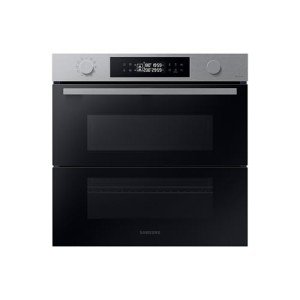Five Killer Quora Answers To Oven Built In
ліёл¬ё

The Rise of Built-In Ovens: A Comprehensive Guide
In the world of contemporary cooking areas, built-in ovens have carved a niche for themselves, changing both the performance and visual appeal of culinary areas. This article dives into the many benefits of built-in ovens, their installation considerations, and a contrast with standard freestanding models.
Comprehending Built-In Ovens
Built-in ovens are created to be integrated effortlessly into kitchen cabinetry, offering a streamlined and sophisticated look. Unlike freestanding designs, which sit on the flooring, built-in ovens are installed at eye level or under countertops, making them ergonomic and simple to gain access to.
Kinds Of Built-In Ovens
Built in ovens electric-in ovens come in several types, each catering to different cooking needs and choices. Here's a short introduction:
- Single Built-In Oven: Ideal for smaller kitchen areas, providing adequate cooking space for most requirements.
- Double Built-In Oven: Offers separate compartments for cooking, best for bigger households or those who often amuse guests.
- Steam Ovens: Utilizes steam cooking for much healthier meals, retaining nutrients and moisture.
- Convection Ovens: Equipped with fans to flow hot air uniformly, guaranteeing quicker and more constant cooking.
| Type | Description | Best for |
|---|---|---|
| Single Built-In | One spacious oven compartment | Little families |
| Double Built-In | Two compartments for simultaneous cooking | Large families |
| Steam Oven | Steam-based cooking approach | Health-conscious cooks |
| Stove | Fan-assisted cooking for even heat distribution | Those who bake typically |
Advantages of Built-In Ovens
Visual Appeal
Built-in fitted ovens offer a streamlined, integrated ovens for sale look that boosts the overall look of a kitchen. They are available in various designs and finishes that can match existing cabinetry and design, developing a streamlined and cohesive appearance.
Area Efficiency
Designed to fit perfectly into kitchen styles, built-in ovens can conserve important floor area, making them ideal for smaller sized cooking areas. By saving area, property owners can take advantage of extra storage alternatives or more counter area for cooking.
Ergonomics
Setting up ovens at eye level gets rid of the need to flex down, reducing stress when examining food or getting rid of hot dishes. This ergonomic advantage is particularly advantageous for people with movement obstacles.
Flexibility
Built-in ovens often include a range of cooking modes and functions, from convection cooking to self-cleaning choices, giving users flexibility in their cooking techniques.
Energy Efficiency
Modern built-in ovens are typically developed to be more energy-efficient than conventional designs. Features such as much better insulation and advanced heating aspects help in reducing energy intake.
Setup Considerations
While the advantages of built-in ovens are considerable, certain elements need to be thought about before choosing this kitchen upgrade:
Space Requirements: Built-in ovens need specific space measurements in regards to width, height, and depth. Precise measurements should be considered to avoid installation problems.
Electrical and Gas Hookups: Built-in ovens may require particular electrical circuitry setups or gas connections. Certified experts need to manage this installation to ensure security and compliance with regional codes.
Cabinets Compatibility: The style and structure of existing cabinets needs to be examined. Built-in designs may require adjustments to cabinetry, or new kitchen cabinetry may require to be created to accommodate them.
Cost: Built-in ovens generally come at a premium rate compared to freestanding models. Homeowners ought to examine their budget plans appropriately and think about long-lasting benefits.
Setup Steps
Below are the standard actions associated with setting up a built-in oven:
- Preparation: Measure the area and remove old appliances if needed.
- Electrical/Gas Setup: Ensure the necessary electrical or gas connections are ready and looked for compliance.
- Cabinet Adjustment: Modify cabinetry as required to fit the built-in oven.
- Positioning: Carefully position the oven into the designated space and level it.
- Connection: Connect the oven to power or gas and guarantee all fittings are secure.
- Evaluating: Turn on the Oven built in to guarantee it operates properly.
Often Asked Questions (FAQs)
1. Are built-in ovens simple to install?
While fundamental installation can be managed by a useful person, it is a good idea to hire a professional, specifically when dealing with electrical or gas fittings.
2. Can I replace my freestanding oven with a built-in oven?
Yes, however it will require careful measurement and possibly some modifications to your existing cabinets to fit the built-in design.
3. How do built-in ovens affect kitchen resale value?
Built-in ovens can enhance a kitchen's appeal, frequently making it more appealing to possible buyers, thus supporting a higher resale worth.
4. Are built-in ovens more expensive than freestanding models?
Usually, built-in ovens are more pricey due to their design and oven built in features. However, their boosted looks and functionality may validate the cost for numerous property owners.

5. What are the best brand names for built-in ovens?
Some acknowledged brands consist of Bosch, Miele, KitchenAid, and Electrolux, each known for their quality and development.
Built-in ovens represent a significant leap in kitchen innovation, using a blend of style, performance, and performance. While they require cautious factor to consider relating to space, setup, and cost, the benefits they offer make them an attractive option for modern homeowners. Whether upgrading an existing kitchen or designing a new one from scratch, built-in ovens can elevate the cooking experience and improve overall kitchen aesthetics. From functionality to beauty, they genuinely embody the very best of contemporary cooking services.

лҢ“кёҖлӘ©лЎқ0
лҢ“кёҖ нҸ¬мқёнҠё м•ҲлӮҙ